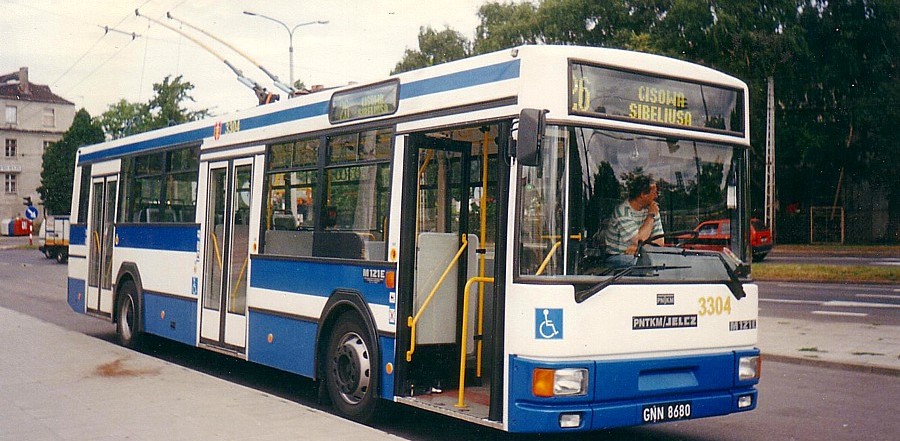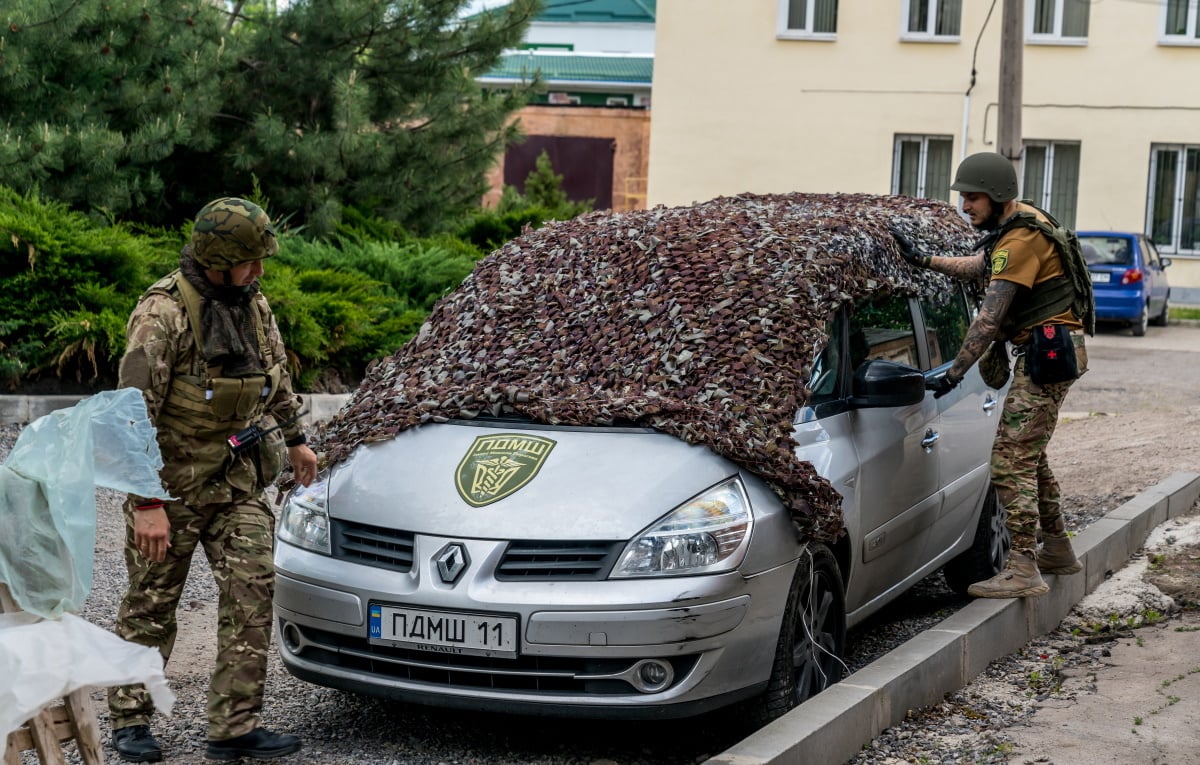Members of the Law and Justice council in Gdynia criticized the city government, which celebrated the 80th anniversary of trolleybus transportation on Saturday, September 16. The first vehicle of this type was rolled out in German-occupied Gdynia in September 1943.
Marcin Bełbot and Marek Dudziński, members of Gdynia’s Law and Justice council, held a press conference on Tuesday, September 19, regarding the city government’s celebration of the 80th anniversary of trolleybus transportation in Gdynia. The city government announced the celebration on their website.
In celebration of the anniversary, the Public Transport Authority has planned various attractions and surprises for Saturday, September 16, including rides on historic and modern electric buses. – The German occupation during World War II was a tragic period that brought many disasters to all of Poland, including Gdynia. But Germany also left a legacy in our city that continues to this day. Due to the increasing problems of fuel supply and the growing need for transport, in 1943 Germany decided to launch trolleybus transport in occupied Gdynia, the implementation of which was entrusted to the company Verkehrsbetriebe Danzig-Gotenhafen AG operating in the city. In March 1945, trolleybus communications in Gdynia stopped functioning as a result of the war, resulting in much of the technical infrastructure being destroyed. Preparations for the reconstruction began in the fall of 1945. The first trials of trolleybuses on the first section of the reconstructed traction network from Zajezdnia Derdowskiego to ul. February 10 happened on February 24, 1946 – we read on the website Gdynia.pl.
THE CONTROVERSIAL BEGINNINGS OF THE TROLLEYBUS
Council member Marcin Bełbot stated on Tuesday that Wojciech Szczurek, Mayor of Gdynia, did not pay attention to important details. – 80 years ago, the Nazi occupation occurred in Gdynia. We believe this holiday is too controversial to be celebrated grandly. You can note this date somewhere, but you don’t need to have a big celebration in town. I don’t even want to think about what the people and descendants of those who died or were persecuted in Gdynia felt at that time – said Bełbot and added that the Germans killed many residents of Gdynia, including in Piaśnica. He emphasized that celebrating the relics of that era is not appropriate, and according to him such holidays could have been celebrated, for example on the first course day after liberation or the founding of the Public Transport Agency in 1992. On the other hand, Marek Dudziński stated that historical policies were not implemented in Gdynia, and the city government “didn’t feel” the history of the city and Poland.
Hubert Kołodziejski, director of the Public Transport Authority, responding to the Law and Justice politicians’ conference said that “80 years ago, new means of transport were introduced, which determined the further development of Gdynia’s public transport.”
– The reason for launching trolleybus transportation in Gdynia in a short time after the war was the availability of material and human resources that allowed the city to take such a decision. During the war, most Poles worked in trolleybus transport, including those who worked in bus transport in the interwar period. Some wartime employees continued to work in Gdynia transport. One of the drivers who started working behind the wheel of a trolleybus in 1943 – Pole Jan Ziegert – only retired in 1996, continuing to drive a trolleybus. Until 1949, the trolleybuses introduced during the war, in particular the German Henschel vehicles, dominated Gdynia’s trolleybus transport, and in the 1950s, together with the French Vetra trolleybuses, they became the basis of its operation – he wrote in the information.
“FROM THE ATTACKER, LEAVE A LASTING LEGACY”
According to the director of the Municipal Transport Authority, “recognizing the launch date of trolleybus transport after the war as its historical beginning would have political overtones that local governments would have to ignore.”
– The way the Germans behaved towards the Poles living in Gdynia does not erase the historical truth that special technical solutions were introduced to Gdynia during the war. As is often the case in history, invaders often left a lasting legacy. The German occupation during World War II was a tragic period that brought many disasters to all of Poland, including Gdynia. But Germany also left a legacy in our city that continues to this day. In recent years, Gdynia’s trolleybus communications have been modernized thanks to innovations in the form of a second electric drive based on accumulator batteries. However, the modern trolleybus is the successor to a technical solution introduced 80 years ago. It is difficult to agree with the thesis that the appropriate historical moment to celebrate Gdynia’s possession of trolleybuses was March 19, 1946, when the first line was launched after the war. Trolley transport is a special transport solution that started operating in Gdynia on September 18, 1943, he said.
PAP/MarWer

“Reader. Future teen idol. Falls down a lot. Amateur communicator. Incurable student.”





